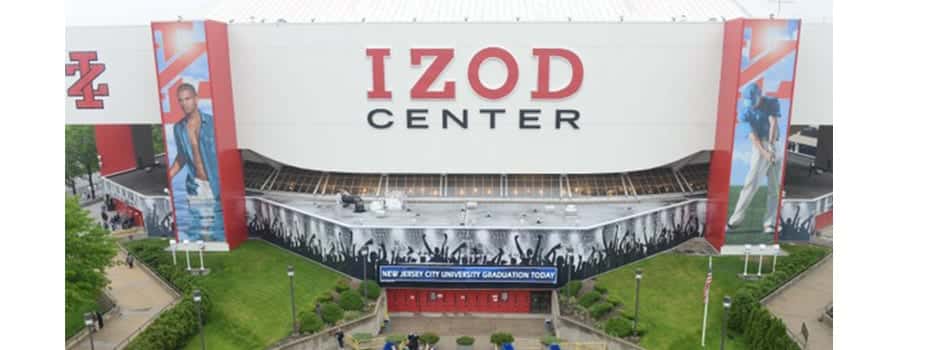Word has gotten out of the New Jersey legislature’s rapid passage of a bill stripping away a limit on tickets held back from the public in the Garden State, and many are questioning why the bill made it through the legislature with zero public hearings on the matter. The measure, which Gov. Phil Murphy has yet not indicated whether or not he intends to sign, was pushed hard by venue ownership in the state, which would stand to profit wildly due to the removal of the 5% cap on held back tickets for industry insiders.
“If you take a look at the groups that lined up that wanted it, it was all of the venues of the state,” state Sen. Robert Singer (R), who sponsored the 2001 bill that introduced the holdback cap, told Politico. “Their claim is they could not attract top shows here because of the split. I always felt this made the bill, and I still believe, less consumer friendly.”
Phyllis Salowe-Kaye, executive director of NJ Citizen Action, also questioned the wisdom of some provisions in the bill, including the stripping of the holdback cap, and the requirement that a face value be placed on the ticket. “On its face, it looks like a pro-consumer bill…,” she told Politico. “But I question why at the same time it’s removed some really important consumer protections… [And] for some unbelievable reason they’re removing the face value on the ticket.”
The fact that there were no committee hearings and therefore zero chance for consumers to speak either for or against the proposed changes to the law, also concerned Salowe-Kaye. “These were all things we would have talked about if we had the opportunity to go to a hearing and testify,” she said.
A consortium of secondary ticketing representatives has drafted a letter to Gov. Murphy, urging him to veto the bill due to its clear intention to benefit the entertainment industry heavyweights rather than the consumers of New Jersey. It was put forth by the United States Minority Ticketing Group (USMTG), and signed by its director Scot X. Esdaile, as well as representatives from the National Association of Ticket Brokers, New Jersey Ticket Brokers, and TicketNetwork.
“The bill appears to be pro-consumer, but after careful review of the language, it is clear there are impediments to free market and consumer choice,” the letter reads. “This legislation would harm consumers and New Jersey businesses, specifically small businesses.”
In addition to pointing out the flaws it sees in the passed bill, the letter outlines several consumer protection measures it fails to address in any way, including full transparency over held-back tickets, a ban on primary ticket sellers directly porting tickets to the secondary market without ever offering for public sale at face value, preventing the implementation of systems designed to limit consumer rights to tickets they purchased by making them non-transferrable, the banning of price floors on the secondary market, and outlawing pre-registration systems which could force consumers to purchase their place in the front of the line to have access to tickets.
“We are also urging you to stand up for small and medium sized businesses in New Jersey,” it continues. “Almost 1,000 ticket resellers reside and do business in your state… The impact to their businesses would be extremely meaningful.”
The lawmakers who pushed for the bill in the first place have defended it, with Sen. Paul Sarlo (D) calling the holdback limit removal a “small provision of the bill” that is “supported by every major venue in the state.”
New Jersey is currently the only state which caps holdbacks on ticket sales, which a study by the New York Attorney General’s office found to be above 50% of the total venue in many instances when looking at events in that state.
Even with the holdback cap in place, venues and promoters frequently flouted the law. A 2009 performance by hometown favorite Bruce Springsteen at the Izod Center was found to have over 2,000 seats held back from public sale, including 60% of the 10 best sections in the venue, according to reporting at the time. Of those holdbacks, 1,450 of the best seats in the house went directly to Springsteen’s band, management, and record company rather than the paying customers.
The full text of the letter to Gov. Murphy is available below, courtesy of the USMTG.
July 3, 2018
Dear Governor Murphy:
We write to you today to encourage you to veto A4295 – An Act Concerning Ticket Sales, Amending P.L.1983, C.135, and Repealing Various Parts of the Statutory Law, sponsored by Assemblywoman Eliana Pintor Marin and Assemblyman Clinton Calabrese. This bill restructures the law regarding ticket sales in New Jersey. The bill was introduced on June 25 and was fast-tracked through the legislature only six days later, without a public hearing and the benefit of public comment and input, and on a Saturday afternoon while most people were focused on the budget negotiations.
The live event ticket sale industry is a robust sector of the internet-driven economy that should welcome new entrants, and more importantly protect consumers. The bill appears to be pro-consumer, but after careful review of the language, it is clear there are impediments to free market and consumer choice. Though it has a few consumer protection additions, it has also ignored other pro consumer and small business proposals while adding several anti-consumer elements. This legislation would harm consumers and New Jersey businesses, specifically small businesses.
While the bill contained some good consumer protections, including providing the purchaser with the purchase price prior to the purchase, a clear refund policy, and anti BOT language, the anti-consumer additions to the bill outweigh the consumer benefits. In this bill a major amendment to the law is the removal of a prohibition on holdbacks that had been in place since 2009. Currently, the law states that prior to the sale to the general public, not more than 5% of the tickets could be held back from the public. The bill would allow venues to hold back an unlimited number of tickets from the public. Research by the New York Attorney General and others have found that more than 50% of tickets are commonly held back from big shows, which leads to frustration among ticket purchasers as well as higher ticket prices.
The bill also removes the consumer protection requirement that places of entertainment shall create a method for season ticket holders and other ticket holders to lawfully sell back tickets to the venue for events they will not be able to attend.
Finally, consumers have always understood that when they bought a ticket, they owned that ticket and could do what they liked with it: such as re-sell it, give it away to a friend or donate it to a charity to raise money for that charity at an auction event. This bill adds language giving the ticket issuer the power to revoke the ticket for any reason without any conditions, again limiting consumer choice.
The bill also failed to add some very important consumer protection measures:
- Transparency – As we mentioned earlier, holdbacks deny the general public the opportunity to purchase tickets. We propose that a section should be added to the bill to compel venues and promoters to publish for public notice the total number of tickets issued for an event, along with the number available to the general public and the number held back.
- Resale by Primary Sellers – Several years ago Ticketmaster was caught transferring all of its customers to its resell site for marked up Bruce Springsteen tickets. We propose amending the law to ban an event promoter, owner or operator of a place of entertainment to sell any ticket as a resold ticket that was not previously sold to the public in an initial sale.
- Transferability – We maintain that consumers should be able to sell or give away their tickets if they so choose. No ticket issuer shall employ a non-transferable ticketing system unless the ticket purchaser is given the option to purchase transferable tickets that the ticket purchaser can transfer at any price and at any time without additional fees, independent of the ticket issuer.
- Ticket price floor pricing – Some teams have, or are attempting to, institute a policy whereby they will not accept tickets which have been purchased at less than face value. We propose banning that policy.
- Registration or pre-registration to buy tickets – Venues are developing applications which require ticket buyers to register or pre-register to purchase tickets to an entertainment or sporting event, or which requires buyers to receive a randomly generated code in order to purchase tickets. Oftentimes these systems requires ticket buyers to participate or register with the artist’s or venue’s social media, or make additional purchases of that artist’s or venue’s merchandise or marketing products. Again, this leads to higher costs for consumers, as well as removes the options for them to transfer their tickets. We propose banning these anti-consumer apps.
- Ban added ticket fees for events at publicly funded venues.
- Equity in the market – Compel the primary sellers to follow the same rules as the resellers, especially in pricing and refund policies.
Though we are asking you to veto this measure for the many consumer issues listed above, we are also urging you to stand up for small and medium sized businesses in New Jersey. Almost 1000 ticket sellers reside and do business in your state, employing innumerable citizens of New Jersey, who will be impacted by these bills. The amount of sales generated by our members and partners on just one our marketplaces alone is over $500 million dollars, so broker and sellers total sales are many times that amount over the several ticket selling platforms available. The impact to their businesses would be extremely meaningful.
For the reasons articulated above, and especially since we were not able to provide public input and comment on the bill, we urge you to veto A4259.
Scot X. Esdaile
Director
US Minority Ticketing Group (USMTG)
www.USMTG.org
Tom Patania
President and Northeast Director
NJ Ticket Brokers & NATB
Gary Adler
Executive Director and General Counsel
National Association of Ticket Brokers (NATB)
http://www.natb.org
Darnell Goldson
Director of Governmental & Legislative Affairs
TicketNetwork



